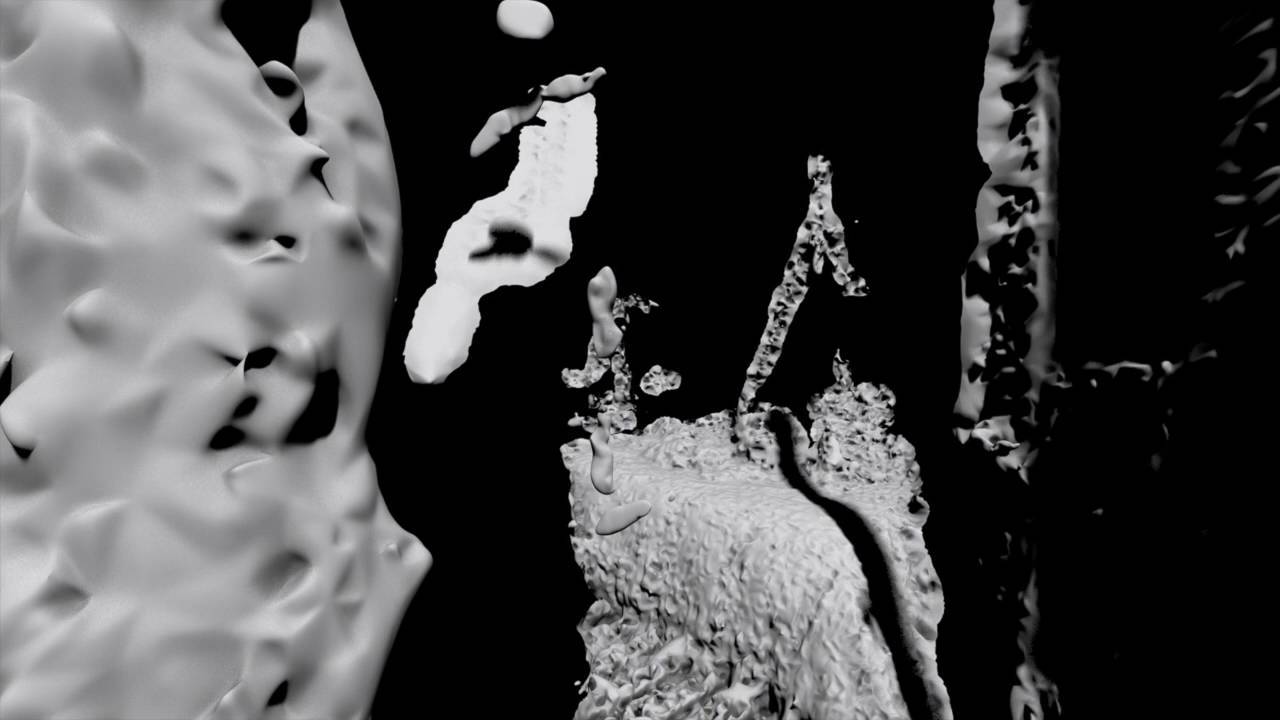Before you even click ‘play’ on Aforger, there’s the arresting, confounding image on the sleeve to reckon with: bare-chested and exposed, Douglas Dare gazes out at the listener as a torrent of ectoplasm spills from his mouth. Whether it’s a visual metaphor for the way words and feelings pour out of us in times of stress or just an expression of self-disgust, it’s a clear indication that Dare is moving on here from the soulful introspection of his earlier material into darker, more challenging territory.
Prior to making this album, Dare came out to his father and ended a long-term relationship, but he was determined not to make a break-up record. While both events figure strongly as subject matter throughout, what we get instead is a meditation on how love – both familial and romantic – can distort our perceptions, with the growing incursion of technology and social media in our lives adding further layers of psychic interference.
The experiences he’s gone through seem to have emboldened him, both vocally and musically. He’s previously been compared to the likes of James Blake and Anohni, but Dare is less inclined to the melismatic, his voice strong but intimate, more reminiscent of a reined-in Jeff Buckley or Thom Yorke. There’s even a hint of Mark Hollis in the spaciousness of the arrangements and the delicacy of his intonation.
Opening track ‘Doublethink’ immediately and brilliantly nails the album’s central preoccupations. A lonely digital drone gives way to Dare’s mournful vocal over spare piano chords. It’s night time and once again he’s hunched in front of a computer screen, mesmerised by the bottomless well of the online world. Its capacity for distraction is both comforting and compulsive as we “slowly forget how it feels to think”, but Dare suggests there’s a stranger, parallel reality beyond the lolz and the trolls –when we use the net to conduct and mediate our relationships with each other, it’s easy to fabricate and self-deceive until our memories become forgeries and our true feelings are abstracted. ‘Doublethink’ continually falters and re-gathers itself, until Dare is left wailing to himself in some degraded, pixelated realm of the senses.
There’s drama aplenty here, but Dare resists the danger of tipping over into bathos. ‘Oh Father’ tackles his coming out head on, and is both touchingly and uncomfortably confessional. Dare’s yearning to be understood is palpable, but it’s not an easy ride – synthetic strings act like a distress signal against the low throb of piano, the sound constantly being nagged at and chipped away until it breaks down into a disturbing chorale, possibly reflective of his father’s reaction. On the stark, jerky swingbeat of ‘New York’, Dare is raking over the times he’s shared with his ex-partner and wondering how real those experiences actually were. There are lovely touches of jazzy piano and marching drums, but his unaccompanied cry of “will I ever love another?” feels naked and raw, reality suddenly cutting in.
But Aforger has a mysterious, almost uncanny quality to it beyond the more obvious emotional exorcism. ‘The Edge’ in particular is a hypnogogic delight, Erik Satie’s Gymnopédies heard from a submerged wreck as Dare slurs words into a phone, falling asleep on the line at 3am. ‘Stranger’ also switches the tonal palette from artificial to organic, a funereal horn arrangement backing Dare’s bleak realisation of “you’re a stranger again”, as intimacy turns to isolation.
Yet while this is a ‘serious’ album by any measure, there’s light amidst the shade, with each track having its own musical identity, albeit one quite often derived from a post-Kid A universe – both ‘Greenhouse’ and ‘Thinking Of Him’ have Radiohead-esque chord patterns and those spectral keyboard washes, the latter also wrapped in a tightly strummed guitar. ‘Binary’ is a similarly up tempo piece of minor key electro-pop that transitions into limpid piano, the ghosts of online memories still haunting Dare as he tries to come to terms with the present.
‘Venus’ is perhaps the most impressive piece of traditional songwriting here, a beautiful sad-eyed ballad that peaks and pauses at all the right moments, warning us not to put people on pedestals lest they become inhuman (this wonderful live version shows what a great performer Dare is too). And then the extended closing track ‘Rex’ returns to his core métier, simple mechanical beats and a snaking piano line that builds towards an oblique but devastating chorus: “You’ll never see the sun for what you’ve done to your own blood”.
Aforger is a fascinating album by an artist who genuinely has something to say about what it feels like to be alive in these times. Effortlessly melodic and immaculately played throughout, there’s nevertheless a very human voice at the heart of this music – it’s the one instrument that the machinery around it can neither subdue nor assimilate.



